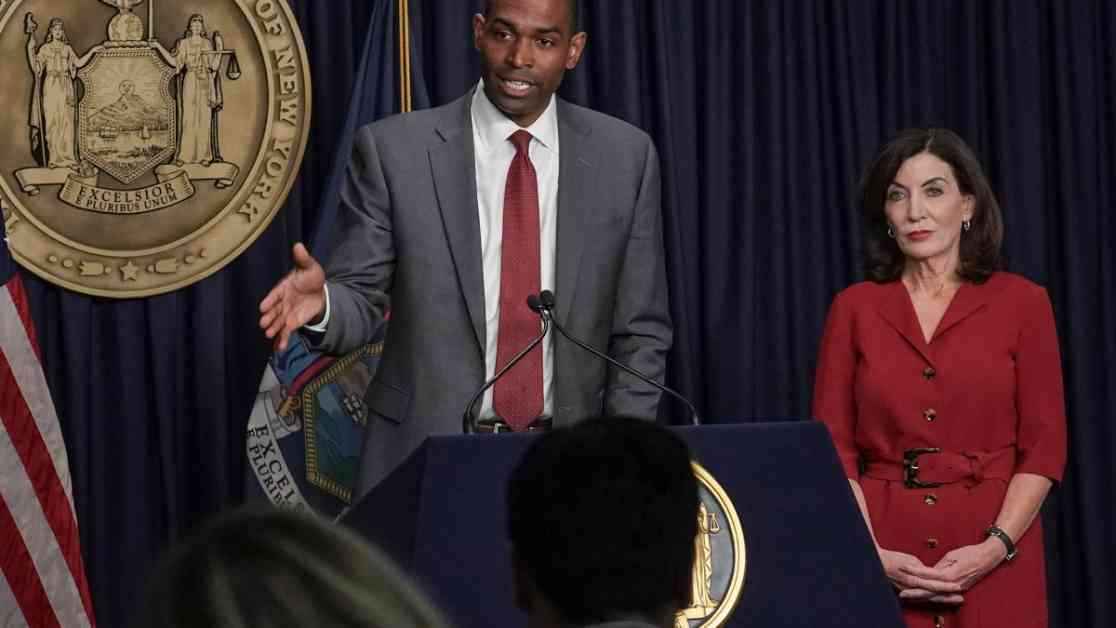A heated feud has erupted in the heart of New York politics, pitting Governor Kathy Hochul against her lieutenant governor, Antonio Delgado, in a high-stakes battle for power and influence. The tensions between these two prominent Democrats have been simmering for months, but recently reached a boiling point that has captured the attention of the public and political observers alike.
The rift between Hochul and Delgado came to a head when Delgado, who was handpicked by Hochul in 2022 to serve as lieutenant governor, announced that he would not seek reelection alongside the governor in 2026. In a cryptic social media post, Delgado expressed his commitment to finishing his current term but did not provide a specific reason for his decision to step away from the role.
In response to Delgado’s announcement, Governor Hochul’s office issued a pointed statement, suggesting that Delgado had shown a lack of interest in fulfilling the duties of his position. The governor’s communications director, Anthony Hogrebe, indicated that steps were already being taken to identify a new running mate for Hochul in the upcoming election, signaling a clear break in the once-promising partnership.
The public split between Hochul and Delgado was a long time coming, with tensions mounting leading up to the previous presidential election. Delgado’s divergent political views and actions, such as calling for President Joe Biden to step aside and challenging Hochul’s leadership on key issues, created an irreparable divide between the two politicians. Delgado’s public critiques of established Democratic figures and his independent advocacy for progressive change further strained his relationship with the governor.
The discord between Hochul and Delgado reflects a broader political reality, as Hochul faces a challenging reelection campaign amid mounting opposition from within her own party. Delgado’s potential bid for the governorship adds another layer of complexity to the unfolding drama, with all options seemingly on the table for the ambitious lieutenant governor.
Prior to assuming the role of lieutenant governor, Delgado served a term in the U.S. House representing a district in New York. While his tenure as lieutenant governor has been relatively low-key, his recent actions and statements have thrust him into the spotlight and raised questions about his political aspirations and allegiances.
In the midst of this political turmoil, Governor Hochul remains steadfast in her commitment to lead the state through these uncertain times. Her decision to limit Mayor Eric Adams’ authority in response to corruption allegations demonstrates her resolve to uphold integrity and accountability in state government, even in the face of internal discord and external challenges.
As the political landscape in New York continues to evolve, the power struggle between Governor Hochul and Lieutenant Governor Delgado serves as a stark reminder of the complexities and conflicts inherent in the world of politics. The future of their relationship and its implications for the state’s governance remain uncertain, but one thing is clear—New Yorkers can expect more twists and turns in the days and months ahead.


